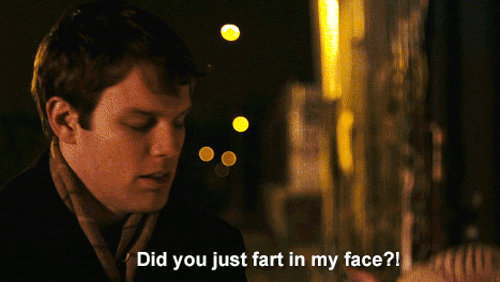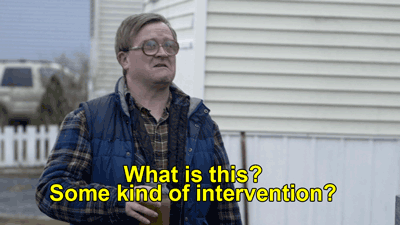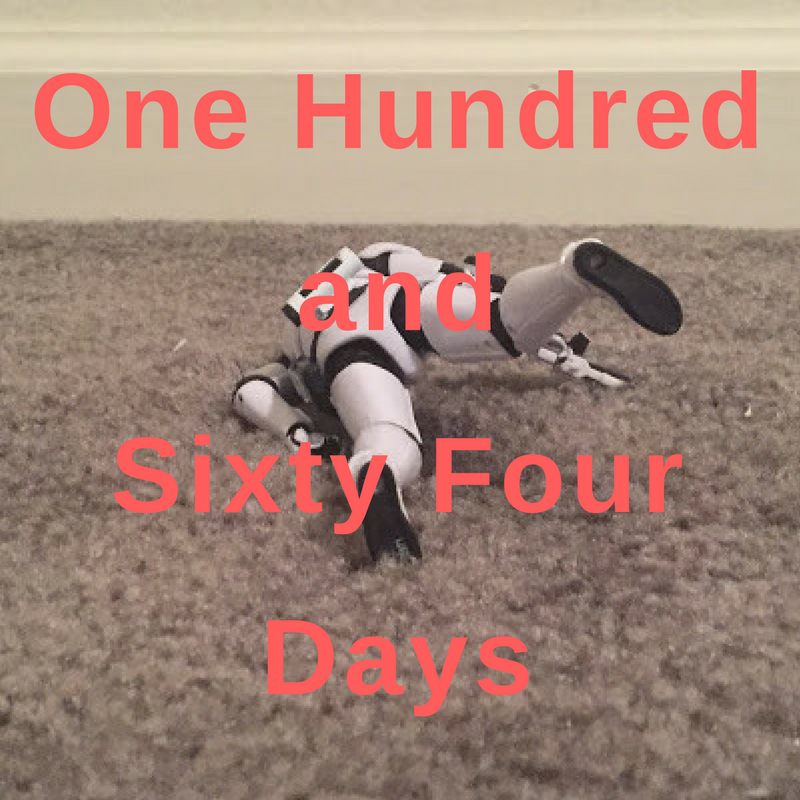Fantastic Four #285

If there's one thing you should have picked up on by now, I genuinely love
Secret Wars II. I think it was an ambitious and endearingly odd experiment, a massive line-wide crossover - only the second
ever, really - masquerading as a weird personal statement on the part of Marvel's then Editor-in-Chief Jim Shooter. To fully understand
SWII you really need to follow it up with Shooter's
Star Brand and his later
Solar - Man of the Atom, in order to see him return again and again to the idea of a normal human being granted godlike powers, and in turn denied the pleasures of domestic bliss taken for granted by the rest of the population. You can read what you wish into Shooter's choice of reluctant gods as authorial proxies, over and over again . . .
However, not everyone working at Marvel was on Shooter's wavelength at the time. So while a number of
SWII crossovers were interesting, many were also unmemorable, and a few were actively terrible. Those books fortunate enough to be scheduled for a crossover during the early months of the series - mainstays such as
Iron Man and
Captain America - lucked out with superfluous tie-ins that needed do little with The Beyonder. Later scheduled series were forced to shoehorn the character into their ongoing storylines - which worked well in the case of a handful of soon-to-be-cancelled series that needed well-timed
deus ex machina plot devices, such as
The New Defenders,
ROM and
The Micronauts. But the worst victims of the crossover were, oddly, Marvel's then-highest selling books:
Uncanny X-Men,
New Mutants,
Amazing Spider-Man,
The Avengers, and
Fantastic Four. Whereas most of the Marvel line was on the hook for only one crossover issue, these five were stuck with a mandated
three crossovers each - four in the case of
The Avengers, which was also allotted the dubious honor of featuring the main series' aftermath as well.
Marvel's attitude towards crossovers is far less compulsory now. Often, lower selling titles participate more in high profile crossovers for the purpose of boosting sales, while higher-selling titles feel comfortable sitting out all but the biggest of big deals. Not so in 1986: your reward for producing one of Marvel's highest-selling titles was being pressganged into participating in the EIC's vanity crossover sequel not once but thrice. To their credit, Chris Claremont and John Byrne rose to the challenge and produced some of the crossovers' best efforts. For instance, in many ways
Uncanny X-Men #203 is the series' "real" climax, with
Secret Wars II #9 serving as that book's
denouement (which, come to think of it, might itself have been a form of passive aggression on Chris Claremont's part).
Fantastic Four #288 was a similarly climactic tale, featuring the Beyonder brought low by Dr. Doom and Reed Richards, while also cleaning up the last great dangling plothole from the original
Secret Wars (again, any resemblance to actual animus between Jim Shooter and John Byrne is completely coincidental, I am sure.)
But, and this is putting it mildly,
Fantastic Four #285 is no
Fantastic Four #288.
Fantastic Four #285 isn't just a genial goofy misfire. It's not a clumsy, ambitious overreach. It lacks the charm of Peter Parker teaching the Beyonder how to use the bathroom, or even the sheer absurdity of the Beyonder curing cancer with a wave of his hand. No, this is worse: this is terrible,
maliciously terrible. This is a wrong-headed comic with an inconceivably awful and profoundly confused "moral" that leaves a rancid taste in your mouth. I thought it was terrible when I first read it almost three decades ago, and it's still awful now. And the worst part is that the story hasn't been forgotten. It placed at #40 on Marvel's recent
75 Greatest Marvel Comics anniversary poll. It even made the deluxe Omnibus commemorating said anniversary. It received a sequel a few years later in
Fantastic Four #342. Its endurance is astounding, considering just how blatantly, irredeemably offensive the story actually is.
Our story begins at the ending, with a coroner's report. Whose report? Why, little Tommy Hanson, age 13. Who is this mysterious Tommy Hanson, you ask? And how does his story intersect with that of the Fantastic Four?

Already on the first page Byrne tips us off the perceptive reader that this is going to be a
heavy trip. Dead children! Sad professional brunettes! This isn't your father's
Fantastic Four! This issue is going to be about . . . Issues.
It turns out that young Tommy Hanson is actually a member of that most harried and abused minority . . .
a fanboy. And not just any fanboy, but a Human Torch fanboy, which is about as sad as it sounds. Especially since all the "cool kids" in the seventh grade know about Tommy's, er,
proclivities.

Seriously, what's going on here? There's a new celebrity gossip rag out with a big feature on the Human Torch. Instead of being all, hey, I'll buy it with my allowance next time I'm in a 7-11, our pal Tommy immediately signs over his lunch money for a month, and agrees to do this guy's homework until Christmas. Even if lunch only costs a couple dollars a day, that's still
at least $30 or $40. This was the 80s so a new copy of
People magazine would have been, what,
$1.50? I'm not even a mathematician and I can tell you that's a pretty steep mark-up.
So now you've met Tommy, in all his denim-on-denim glory. Let's be frank here: Tommy is a sad-sack without any redeeming features, in terms of the junior high pecking order. He's thirteen years old and 3'6", which is pretty sad all on its own. It's conceivable, based on the evidence here, that Tommy has serious medical problems besides just being a nerd.
Anyway, Tommy's joy over getting his seriously overpriced magazine is cut drastically short when Ms. Welsh discovers him reading the magazine in class.

Oh boy, there's a lot going on here, and none of it is good.
One of the more uncomfortable facts of life for many kids growing up liking stuff like comic books, sci-fi, or fantasy is that the reason they gravitate to these pursuits is because they have a hard time fitting in. It's often a chicken / egg situation - did you start reading comic books because you had a hard time in school or did other kids give you a hard time in school because you read comic books? When your peers were repeating dirty jokes they heard from their older brother and talking about which supermodels they wanted to bang, did they call you "faggot" because you didn't have an opinion one way or another? Or did they pull a pile of comics out of your backpack, spot some overly-muscled male superhero, and, well, you see a pattern here? Lots of sexual insecurity on display from all directions. Those examples aren't from personal experience, but they loom large in the racial memory of certain kinds of comics fans.
And this is where the story tips its hand. Because Tommy isn't just
any kid, he's a Reader Surrogate. Not in a good way, mind you. He is standing in for the comic book nerd's worst possible self-image: the undersexed, physically weak, hopeless geek with nothing to live for besides his precious superheroes. But it's OK, you see, because Tommy doesn't have a
crush on the Human Torch, no sir. He just really likes the idea of a flamboyant, flaming young muscular man.
Byrne has a, let's be politic here,
questionable track record when it comes to homosexual characters. Of course they didn't talk about these things openly back then. But read his
Alpha Flight, or his
Namor. There are clearly gay characters in both series, but they're also not the best possible portrayal of LGBT characters. In fact, both Northstar and Desmond Marrs play up different angles of similar kinds of noxious gay stereotypes - finicky, flamboyant, scheming, bitchy. (Also, they both have strangely intimate vaguely incestuous relationships with twin sisters, which is . . . weird?) So gay people do exist in Byrne's world. But Tommy Hanson isn't gay. Because there is no way that Byrne could ever have given a sympathetic portrayal of a kid with ambiguous or confused sexuality. And because he's our perverse audience surrogate, Byrne has to bend over backwards to state as explicitly as possible that there is
nothing at all gay about liking superheroes.
Anyway, we see the rest of Tommy's day, and it doesn't get any better from here.

Absentee mother? Check. Absentee masculine role model? Double check. But, there is
someone around . . .

Here's Joss. What the heck is Joss doing here? Well, Joss is a guy wearing a leather vest with no shirt underneath, long hair in a ponytail and a Mephistophelian goatee. He also has to "call the office" when he gets a call on his "pocket beeper." Given that we know Joss spends his spare time tinkering with remote control airplanes and playing around with his own special formula of rocket fuel, because real rocket fuel isn't good enough for his toy airplane, what possible "job" could our pal Joss actually have? Does it involve selling special herbs from a van? Or does he spend his time driving around the countryside with three friends and a dog, supposedly "solving mysteries" but really just following the Grateful Dead's tour itinerary?
Anyway, in case you needed the help. Because the story really is just too subtle. Byrne provides foreshadowing. Did you miss the
foreshadowing? Here's the
foreshadowing again, in case you missed the
foreshadowing:

Meanwhile, in case you forgot who the main characters of the book are, it's the Fantastic Four! At this period in their career, the Baxter Building had been demolished and the team spent a few months living in Avengers Mansion while their new building, Four Freedoms Plaza, was being built on the site of the old. And, oh yeah, the Beyonder was still skankin' around, somewhere, doing somethin' - nobody knows what! Will that be important? Who knows!

Now, the good thing about being on a team with Reed Richards is that you know he's going to spell out every plot point and thematic element precisely and at length. Now . . . I'm only partially joking here. From the series' very early days Reed was the obnoxious know-it-all lecturing to his best friends about anything and everything. But one of Byrne's better tricks writing for the series was subtly and not-so-subtly aging the other members of the cast so that they weren't completely dependent on Reed to provide all the series expository gravitas. If you recall a few weeks back when I tackled
the Thing's participation in SWII, one of the themes of Byrne's run on the characters was the fact that the other members of the team - especially Ben - had grown resentful of Reed's treating them like children. This scene, which begins with Reed lecturing Johnny, turns out to be a reasonable conversation between more-or-less equals. It's a nice character piece that also touches on some of the themes of the main crossover. Byrne may or may not have resented the imposition of having to participate in the series, but he still had a good understanding of what Shooter was trying to accomplish with the Beyonder. He also managed to tie in the Beyonder's presence with themes Byrne established in the then-recent "Trial of Galactus" storyline.

But look who it is, it's that lady doctor from the first page. Which means that try as we might, we're not going to be able to forget that other, awful-er plotline . . .

You know how I said that Byrne matured the team a little bit? Well, even though Johnny was going steady with Alicia Masters (who would later turn out to be a Skrull, you know, so just think about the fact that he was married to a Skrull for five years), he still finds time to flirt with the woman doctor in the maroon pantsuit. Good job, Johnny, way to class up the joint.
Anyway, upon hearing that Tommy Hanson is dying in the hospital, Johnny beats feet.
 "I only did it to be like you . . ."
"I only did it to be like you . . ."
Fans with long memories might remember that the Human Torch was excluded from the late 1970s
Fantastic Four cartoon, replaced with longtime fan punching bag H.E.R.B.I.E. the Robot. The rumor for years was that the character was kept off the show for fear of inspiring stupid children to set themselves on fire to emulate their hero.
This was false. But the rumor stuck, and even though the series lasted a scant thirteen episodes, everyone hated H.E.R.B.I.E. so much that during Marv Wolfman's run (which immediately preceded Byrne's, and for which Byrne was partially the artist) the robot became mentally controlled by Dr. Sun and was subsequently destroyed after trying to kill the team.
So as absurd as it may seem, the grimly specific nature of Tommy's death was actually a reference to an urban legend about a cancelled TV show that remained a bone of contention with thin-skinned fans for many years.

Tommy's parents are, understandably, a little upset about what happened to their son. How exactly are readers supposed to read this scene? On the one hand, you have grieving parents who are reacting against the most proximate cause of their son's death - i.e., his emulation of his superhero idol, who also happened to be a man on fire. On the other, we've been given every reason to think that the Hansons are simply awful parents, leaving their son alone all day, oblivious to his problems at school, perfectly willing to let him spend his free afternoons with "Joss." So whose fault is Tommy's death? Is it Johnny's? Or his parents? The clear answer is that Tommy fell between the cracks, let down by his parents, his teacher, and his only "friend." But if there is one thing that the story goes out of its way to communicate, it's that the only person completely undeserving of blame is Johnny Storm, the actual guy who inspired the kid to set himself on fire.
Johnny reacts, I think, how most of us would in the same situation, rightly or wrongly:

OK, that's the end of the story. The Human Torch retires, never uses his powers again, and spends the rest of his life working for children's charities. The rest of the Fantastic Four carry on, and the world keeps spinning. The End!
Oh, shit. It's still not over.

Yep. This happened during the brief period where the Beyonder was on his whole life-affirming kick, teleporting around the planet in order to help people better fulfill themselves. So he hears Johnny's words in his moment of anguish and decides that there is no better time to pop in and help out by giving a timely pep talk.
Johnny doesn't take too kindly to the One From Beyond showing up to help, considering he - like the rest of us - remembers that just a few months back the Beyonder was taking potty training lessons from Spider-Man.

Just about everything about the issue up to this point has been remarkably offensive, but . . . this is simply ghastly. It's disgusting. It's the kind of "moral" that only makes sense in the wind-tunnel of comic book fandom, a world in which living vicariously through fictional heroes is somehow considered a legitimate alternative to "real" life.

Sure, we've all been there. We've all had those moments or those years where spending time with fictional friends has been far preferable to real friends. For some of us, comic books (or gaming or fantasy or whatever) were what we needed to get through hard spots in life. Tommy
is that kid. That much is obvious: we're supposed to sympathize with the kid whose life was so bad his only respite was collecting celebrity gossip rags with Human Torch photo spreads in them. But how sublimely self-serving of this comic to tell us, the readers, that it's OK to be losers
so long as we keep buying Marvel comics. It's OK because there is no way, no sir, that we're gay. Because that's obviously a fate even worse than setting yourself on fire.
To say that this "message" is garbage is an insult to garbage. The story stacks the deck against poor Tommy Hanson, giving us the worse possible model of the socially maladjusted, physically disadvantaged, sexually backwards adolescent nerd. There is
nothing going on in this kid's life but reading comic books and being a fanboy. But that's OK! Nobody should feel bad about reading too many comic books and getting beat up at school because it's just fine and dandy to live vicariously through comic books. Why has this story lingered in the imagination of aging fanboys? Is it because it's provides the perfect excuse for growing up and into the kind of maladjusted Eltingville Club monsters who use their bad childhoods as all the excuse they need to spew abuse and harassment across the internet? Lifelong resentment against bullies both real and imagined provide all the rationale necessary to turn against the world that hates and fears you. It's OK because Marvel Comics are your only real friend. Marvel will never leave you.
Not only is the reader's expected sympathy towards Tommy heavy-handed, but the story's supposed life-affirming message is disconcerting and self-absorbed. Every ounce of sympathy towards Tommy dissolves the moment you realize the story is solely intended to make its readers feel better about being nerdy outcasts. The message isn't "it gets better" or that you need to be confident in yourself or stand up to bullies or that you should reach out for help to other people when you feel alone - the message is that some nerds are so far gone that the best they can hope for is a quick death. Is there a single coherent message to be salvaged from the story, or is it futile to even try?
And because this is a self-important superhero comic, we can't be expected to get off without a ham-fisted literary quote:

Tommy wouldn't say it had a happy ending. Nothing about this even vaguely resembles a happy ending. This is a shitty ending about how the world is a shitty place and even though shitty things happen, pretty people will always find ways to make themselves feel better about those shitty things, even when the shitty things are partially their fault. What's more, it's OK to be pretty and oblivious because it makes the peasants feel better about themselves to be able to look up and admire their betters. Or something?
I am confident in asserting that this is one of the worst comics Marvel has ever published. It's stuck in the middle of one of Marvel's most celebrated runs by one of its most celebrated creators, so not only has it historically received a pass, it's been celebrated for its toxic "message" by successive generations of fanboys too stupid to tell when they're being insulted.
Oh yeah, in case you were wondering:

Yep, even as
Secret Wars II marches on, life continues, and the resurrection of Jean Grey for the purposes of launching the first non-Claremont X-Men spinoff was a story too important to wait. You know Byrne just had to get in on that action.

































